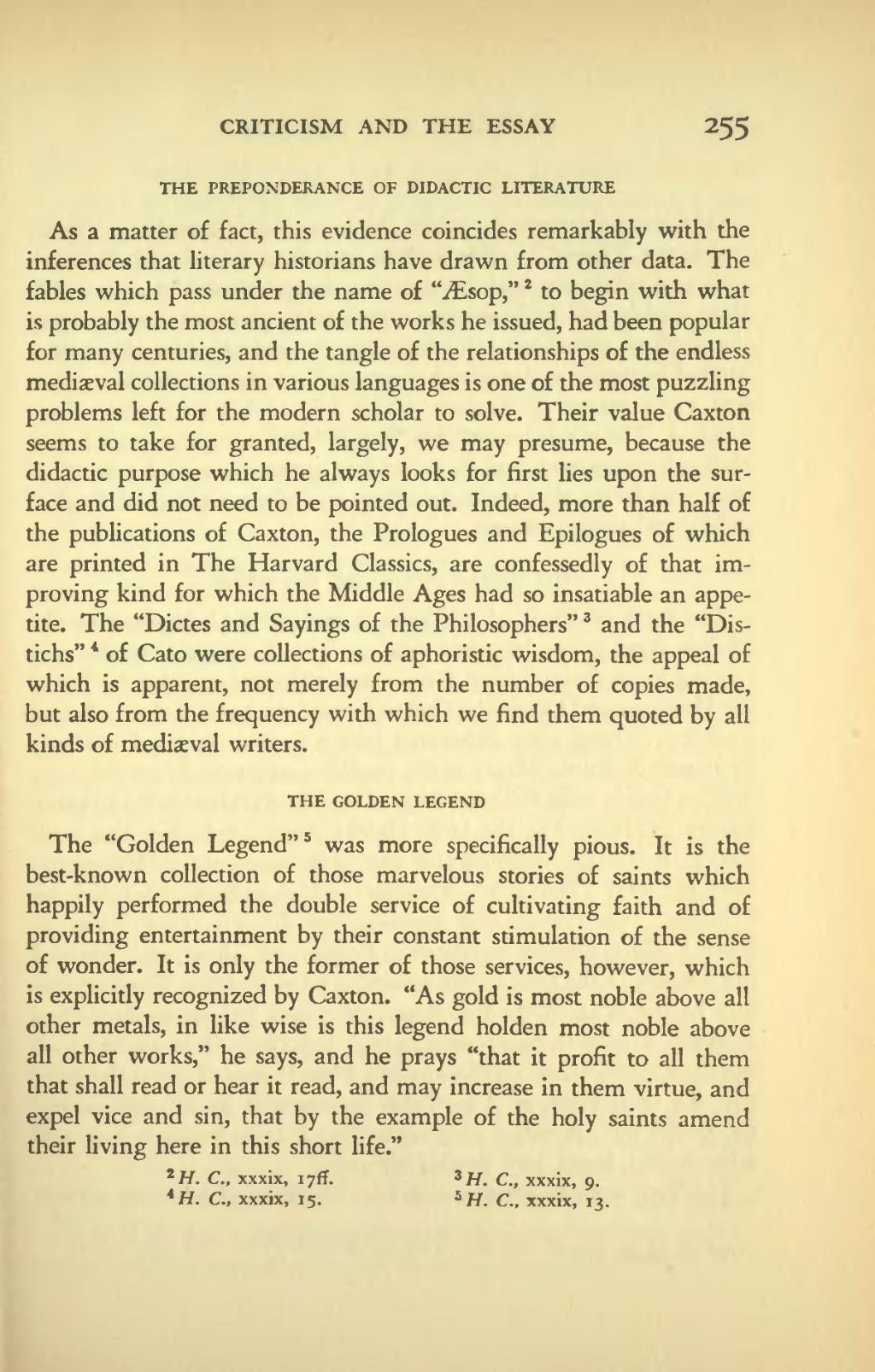THE PREPONDERANCE OF DIDACTIC LITERATURE
As a matter of fact, this evidence coincides remarkably with the inferences that literary historians have drawn from other data. The fables which pass under the name of "Æsop,"[1] to begin with what is probably the most ancient of the works he issued, had been popular for many centuries, and the tangle of the relationships of the endless mediæval collections in various languages is one of the most puzzling problems left for the modern scholar to solve. Their value Caxton seems to take for granted, largely, we may presume, because the didactic purpose which he always looks for first lies upon the surface and did not need to be pointed out. Indeed, more than half of the publications of Caxton, the Prologues and Epilogues of which are printed in The Harvard Classics, are confessedly of that improving kind for which the Middle Ages had so insatiable an appetite. The "Dictes and Sayings of the Philosophers"[2] and the "Distichs"[3] of Cato were collections of aphoristic wisdom, the appeal of which is apparent, not merely from the number of copies made, but also from the frequency with which we find them quoted by all kinds of mediæval writers.
THE GOLDEN LEGEND
The "Golden Legend"[4] was more specifically pious. It is the best-known collection of those marvelous stories of saints which happily performed the double service of cultivating faith and of providing entertainment by their constant stimulation of the sense of wonder. It is only the former of those services, however, which is explicitly recognized by Caxton. "As gold is most noble above all other metals, in like wise is this legend holden most noble above all other works," he says, and he prays "that it profit to all them that shall read or hear it read, and may increase in them virtue, and expel vice and sin, that by the example of the holy saints amend their living here in this short life."
